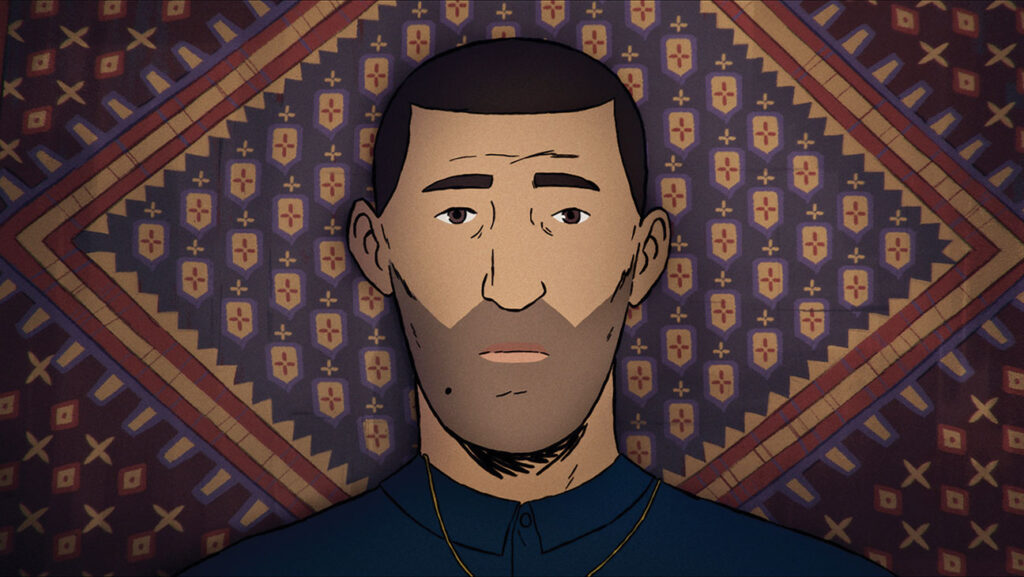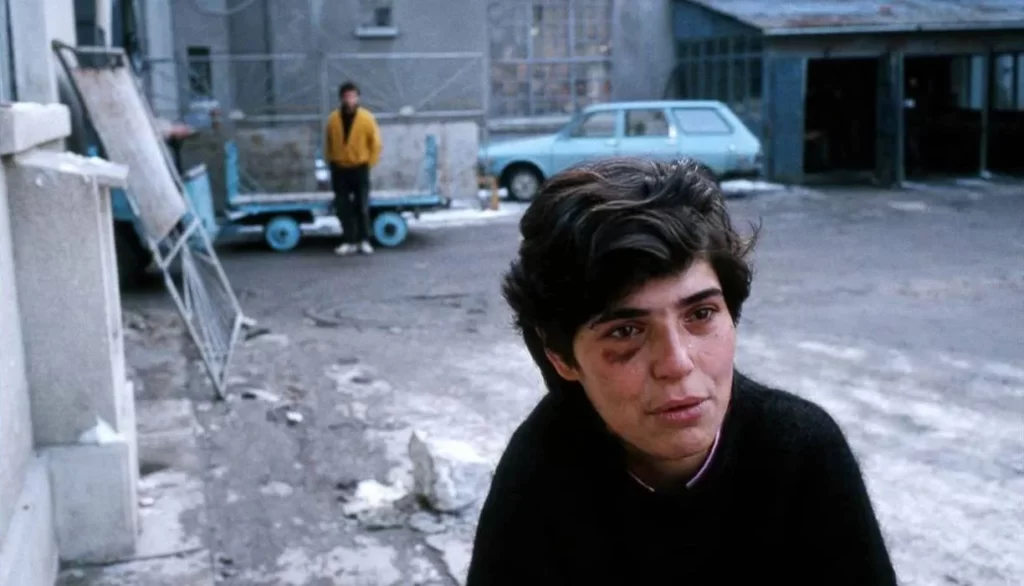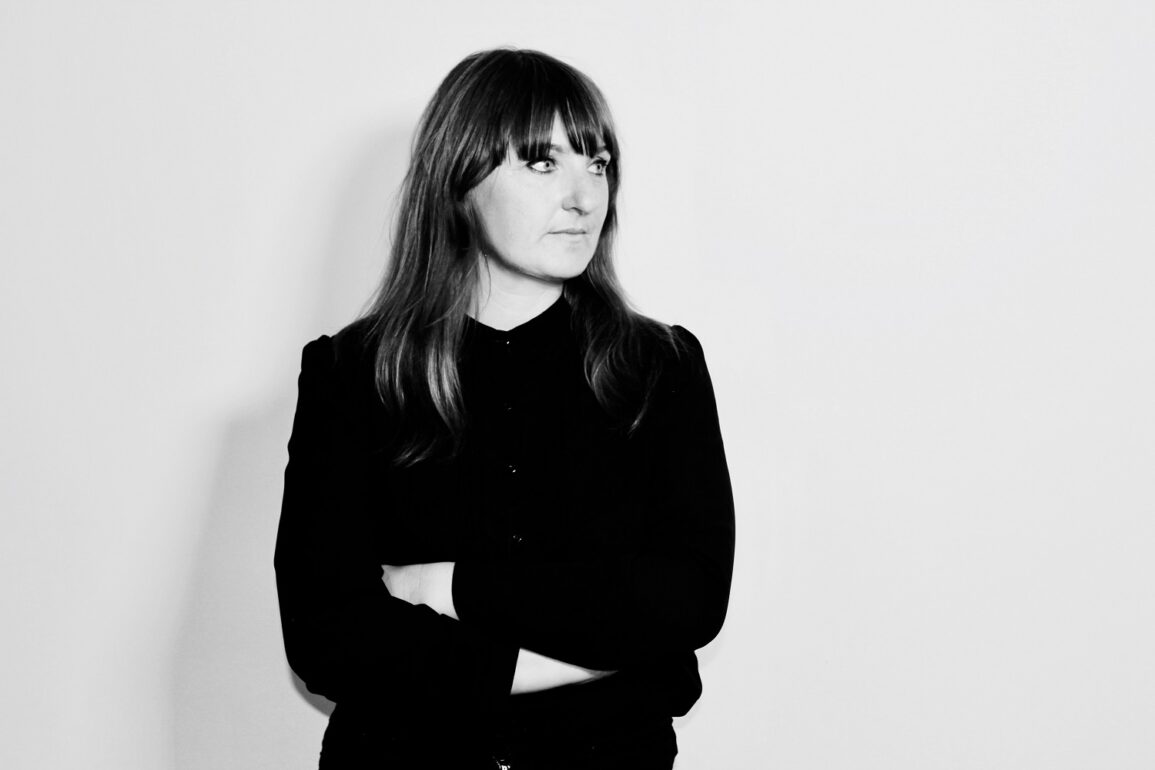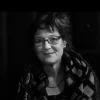The upcoming Australian Industry Documentary Conference (AIDC) in March is proving to be an exciting, industry defining event that will focus on the theme of Bearing Witness. With a huge array of international and national guests, from the Academy Award winning filmmaker Eva Orner (Burning), to emerging filmmaker Cody Greenwood (Under the Volcano), and Academy Award shortlisted filmmaker Jonas Poher Rasmussen (Flee), this conference will look at the changing world of documentaries and more.
Creative Director Natasha Gadd joined Andrew to discuss the upcoming conference, the amazing array of speakers and guests, as well as discussing the themes that will be presented at the conference. Natasha also talks about her journey with documentaries and what the theme Bearing Witness means to her.
AIDC will run from 6-9 March 2022 in person and online, with an online only international marketplace taking place from 10-11 March 2022.
For more information, head to aidc.com.au for more details.
I saw the lineup of what you’ve got planned for the conference and it’s really impressive. You must be pretty proud, I imagine you would be pretty stoked by that.
Very, very proud I have to say. Particularly, a few different speakers that we confirmed last week have got over the line and has made our lineup of both local and international speakers as well as obviously all of our incredible buyers into a very incredible lineup. So we’re thrilled.
Congratulations. I’m a huge documentary fan, so getting to see so many familiar names people who I haven’t seen in a while, like Florian Habicht. And then of course, Eva Orner being there is just so exciting. I’m thrilled for the conference in March. It’s going to be really fantastic.
Thank you. Well, based on a couple of additional speakers we locked off yesterday, we worked out that we have got four Academy award shortlisted directors of this year’s Academies lined up to speak.
We’ve got Jonas Poher Rasmussen who’s the director of Flee, an incredible animated feature documentary, which has shortlisted for the Oscars this year and has been doing the rounds of all of the festivals and has around 50 international awards already. And Nanfu Wang who is an incredible investigative filmmaker, who’s film In the Same Breath looks at the different responses of the US and her homeland of China and how they were dealing with COVID as it came out of Wuhan. She’s also on the Academy shortlist. And Sushmit Ghosh and Rintu Thomas, who are the Indian directors of Writing with Fire, an incredible documentary looking at two female journalists in a very male dominated newsroom. We’re really thrilled to have those international guests headlining our spotlights.
And we’ve also just locked in literally the last couple of days Chapman and Maclain Way, who made the Netflix Untold sports crime series and Wild Wild Country.

How do you manage all of this during a pandemic and during the global disruption where people can’t travel? Is there an appetite from these filmmakers to share their stories as much as they can digitally, at these kinds of conferences?
Obviously because we’re in the midst of a global pandemic, a lot of our international guests unfortunately won’t be able to travel and will be joining us online. We put in a good pitch with our theme Bearing Witness and it was very much around the idea that during the midst of a global pandemic and mandated lockdowns and border closures that we really saw documentarians continue to innovate and adapt to bring us stories, to capture those moments in time and to take them to audiences across the globe.
So we had a really strong theme in mind and a number of sub-themes which drilled down into the (central theme). (We have the) On the Record strand, which is looking at the investigative documentary, the truth telling and journalism angle; and then Truth to Power, which is very much about films for change, and looking at impact films; and Documenting History, which is looking at how archive driven projects really have been made in abundance over the last couple of years, which completely makes sense when no one can travel, particularly with really great music docs; and Moments in Time, which is those sort slow observed character made of docs, which we’re looking at both the feature length character docs that we’re seeing with some of our local filmmakers. We also look at factual (docs) for television, and platforms, because we’re really covering all of the ways in which nonfiction stories are told and distributed and exhibited.
And Future Visions which is looking at innovation in the doco space, so not just in terms of new technologies, but ways in which people can experience documentaries instead of just watching and viewing them, those kind of docs that work with interactive or immersive storytelling technology, such as VR (virtual reality), AR (augmented reality), and even work within museums and gallery spaces that can be more immersive.
And then just how do we regenerate? What happens from here on for our filmmakers, as we’re still in this COVID world and it’s still posing a lot of challenges.
2021 saw some big challenges for filmmakers, not just documentarians, but filmmakers across the board in Australia with the proposed changes to how films would be made and financed, and that facing uncertainty is got to be quite a big challenge. There’s a who’s who of Australian filmmakers here, with up-and-coming filmmakers (Cody Greenwood, Madeleine Martiniello) and established filmmakers (Eva Orner, Bentley Dean), and it’s really exciting to see that in a complex and difficult time. All of these people are going ‘alright, let’s tackle this challenge head on’.
What does that mean for you as the creative director of pulling all of this together to see all of that take place?
We’re doing the same thing in the sense of we’re innovating, we’re adapting, and it sort of triples the amount of preparation and planning and delivery to do an event like this. The same is happening for filmmakers whose shoots are being canceled – it’s always good to have a shake up, but sometimes it’s more challenging than the benefits might offer – but, having to look at hiring local crews on the ground and not take your own crews over and direct via Zoom and these things that we’ve been seeing people do to be able to still tell stories. I guess we’re trying to do that as well, to be able to still bring these documentary and factual filmmakers together, whether they’re local or international. We had to create this model, which meant that people could access AIDC either in person if they chose to, and they felt comfortable traveling and being in Melbourne, or they could attend online so that no one was left out and that the community and the industry could still come together regardless.
One of the things which I found really fascinating talking to filmmakers last year about making films and the challenges that have come up (during the pandemic), with films like Strong Female Lead, which was born in a time where change was happening. And in some ways, the pandemic made it easier to work on that because it’s completely archival. And so therefore, the changes are happening so quickly, and the filmmakers are reacting so quickly. And I was stunned by how reactive people could be. Of course, that’s part of the nature of being a documentarian, you have to pivot on the go.
That seems to be something that you’ve done with the conference itself. How do you manage that yourself, pivoting on the go, and to be always reacting to things quickly? Does that excite you?
We haven’t had to do it yet. We’re doing the groundwork and if we had to pivot quickly, we could, but it doesn’t mean that along the way we have had to make all sorts of decisions. When you think about before COVID – BC I like to call it – it would be a really big deal when we would have those four days that every single person would be on the ground. So we would have 800 people from both here and overseas, all attending for the four days.
AIDC has been running for 34 years, so it’s a model that was very tried and tested. So this is an enormous disruption, and it requires a whole new team, a whole new event platform to be able to manage that. Every single team member is now having to think both of the audience and the speakers in person and online. In the old days with AIDC, you’d all be on the Melbourne time zone, whereas now because people are coming in from everywhere, we’re now working with multiple time zones. Just being ready to pivot.
Also, we know that delegates who have bought classes to attend in person, something might happen and they need to transfer that pass to online, and other people who might have not wanted to make the decision early, by the time the conference comes around, will decide to be there in person. So we know we’re going to be on our toes. We’ve done everything we can to build that the framework for us to be able to do that.
The theme of Bearing Witness feels like a universal one within the documentary sphere, but also feels like a very personal one to you. I’m curious, how did your connection with documentaries start? How did you engage with that notion of Bearing Witness?
That’s such a great question. I started initially working as a film programmer. So I was working on a documentary festival called Real Life on Film, it started with a group of volunteers. It was very small and we sourced films from Margaret Mead and Human Rights Watch. And over the years, we then expanded to doing our own call for submissions, so we grew and grew and became a national touring festival.
And during that time, I watched so many incredible films and there’s one that really struck me and it was called Children Underground, by Edet Belzberg, set at the time post, the sort of Ceausescu regime (in Bucharest) where a lot of the state run institutions and orphanages were shut down. And so a number of kids ended up on the street and living in the train station in the underground train stations. And it was brutal. It was like an observed film where the kids were sniffing paint and begging and stealing and just treated appallingly. And, it showed the day to day lives that they were living in, and it was a commentary on the border and political issues that were happening and why these kids ended up on the street.

There was just so much talk around this film and questioning of the filmmaker for not interfering or intervening; (questioning) the role of a documentarian: do you just bear witness as an innocent bystander or do you get involved and do you do something? And I just remember her saying, ‘I always thought I would probably intervene because I don’t know how I would be able to do that without helping’. But her point was, ‘I might not be able to change the lives of those children, I might be able to help them for a week, two weeks, provide some way out for that night. But at the end of the day, what I might be able to do for those children in the long run and for the future children is shine a light internationally on what that government is doing and how much it is harming those children and to create change and to drive awareness of legislative change that then has a long-lasting impact for a greater group’.
And it just always struck me about the role of the documentarian and all of the ethical considerations that they have to make it every single step of the way. ‘Do I film this? Do I put my camera here? Do I do anything with this moment?’ And then how pure is that original moment once you start getting the editors involved and editorial feedback from the funding process? And so that’s why we are talking in this conference about the act and the impact of Bearing Witness at all those different stages.
Thank you. It’s something which I find is really so fascinating about documentaries that they can be very entertaining, they can be light and fluffy, and then they can also be heavy, world changing pieces, films that have a real genuine impact. And then on the same hand, there can be films that highlight aspects of history that are hidden.
One of the screenings that you’ve got is Ablaze, which I watched last year via MIFF, and I absolutely loved that because that was unveiling a slice of Australian history which I wasn’t aware of. And I was so moved and entertained by that film and found it just so powerful and exciting. Here is a part of Australian history that has been hidden and lost for so long, and yet, we’re exploring it on film. That’s the fluid state of documentaries, how they manage to unveil history and also document history and create change through that. It’s such an exciting thing.
We should be all privileged right to watch docos because you get to learn so much and you get to have your eyes open to so many stories from so many places and so many perspectives and, if you’re an avid viewer of documentaries, you’re lucky to be able to continue to learn so much about the world without moving.
I’m in the midst of writing a book at the moment about Australian films that were released in 2021. I think that people tend to forget how many Australian films are released each year. We have hundreds of Australian films released each year, and while the fiction narratives or fictionalised narratives are in the dominant consciousness, The Dry, Nitram, people always focusing on them… there were over 100 Australian documentaries that were released last year, whether they were feature length or short. It seems to be the dominant style of filmmaking that is made within Australia. What is your perspective on on how dominant the doco sphere is here In Australia? And why is it something that people continue to turn to?
I just think that there’s potentially more opportunities now for documentary makers to get their films out there. And then the more that they get their films out there, the more it drives the appetite, because people start to watch them and realise how engaging and entertaining they can be. And when you think about how it’s moved from traditional broadcast documentaries that were the one off episodes, to big series that people can sink their teeth into and binge watch, and all of that makes people I think, who might not have ordinarily been interested or thought they were interested in watching docs that makes them much more open to watching docs in any format. And I think then that gives justification to the funders because there’s an audience pathway, and there’s an audience appetite, and then they create more opportunities, and it just fuels the ecosystem.
One of the people you’ve got talking is Ted Hope, from Amazon, and the work that was created via Amazon with documentaries in 2021 was really fascinating. We’ve got Burning, and then they had some series work as well, Unheard (with Ladbible), Making Their Mark. I was really surprised by Making Their Mark, it felt like a bit of a gamble in a way, but there is an audience for it. And it felt a little bit surprising that Amazon would be like, ‘hey, Australians, why don’t we make some documentaries about your neck of the woods’?
They’re all sorts of issues that we like to discuss at AIDC because whilst that’s really great in terms of opportunities, it’s also then can potentially encroach on some of our national broadcasters as well, who would usually access those filmmakers to make content for their network. So, the opportunities can be great because the more players in the game who are putting money on the table for filmmakers, the more stories and the more films, but there’s always still complex discussions to be had about the benefits of international players in a local space and what other ways are local broadcasters can be doing to commission films that have more global appeal. They’re all topics that end up for discussion at AIDC.
It sounds like it’s a safe space, so there is the freedom to be able to have those kinds of complex discussions in an open space. Outside of the sessions, is there an area that people who want to talk about what they’ve just seen online, to be able to do that online together after the sessions?
One of the benefits of having this new online event platform is it’s also the place where if you’re attending AIDC online, you go to this platform to watch all the sessions and each session has a live chat, which is moderated by the Q&A. And so for the people that are actually attending AIDC in person, that’s an app. And so there’s lots of ways that people can continue the conversations.
Check out the full press release for the AIDC in March on the next page.
AIDC will run 6-9 March 2022 in person and onilne, with an online-only international marketplace from 10-11 March 2022.



